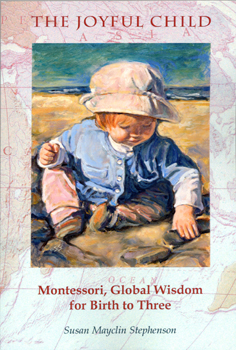|
BIRTH TO THREE - MONTESSORI INFORMATION
Dr. Maria Montessori, MD
Maria Montessori was always a little ahead of her time. She was born in
Italy in 1870, and in 1896, became the first female doctor in Italy. Dr.
Montessori based her work on the direct observation of children. She accepted
no preconceived opinions or theories about their abilities, nor did she
attempt to manipulate their behavior by reward or punishments toward any
end. She constantly experimented and developed materials based on the
interests, needs, and developing abilities of children. Educators called
Dr. Montessori a miracle worker.
Like others I had believed that it was necessary to encourage a child
by means of some exterior reward that would flatter his baser sentiments,
such as gluttony, vanity, or self-love, in order to foster in him a spirit
of work and peace. And I was astonished when I learned that a child who
is permitted to educate himself really gives up these lower instincts.
I then urged the teachers to cease handing out the ordinary prizes and
punishments, which were no longer suited to our children, and to confine
themselves to directing them gently in their work. - Dr. Montessori
Invited to the USA by Alexander Graham Bell, Thomas Edison, and others,
Dr. Montessori made an appearance at Carnegie Hall in New York by 1915.
The following is a letter from this period, from Alexander Graham Bell:
Dear Dr. Montessori, On behalf of the Montessori Educational Association
of America I have the honor to inform you that we have elected you as
its first Honorary member and to express to you in this way our deep appreciation
of your great work for humanity.
The Montessori 0-3 Program
Over fifty years ago Dr. Montessori realized that working with children
older than three was too late to have the most beneficial effect on the
life of a human, and she initiated what was to become a two-year, full-time,
course for adults living or working with children from birth to three
years of age.
This Assistants to Infancy course is attended by parents, birth and early
childhood professionals, Montessori teachers, administrators and teacher
trainers from around the world and a graduate is awarded an AMI (Association
Montessori Internationale) diploma. It consists of almost eight hundred
hours of lectures, material making, and observations, plus homework, readings
and papers. It counts for the major part of a Masters degree in education
from Loyola College in Baltimore. For more information on a USA course,
contact: The Montessori Institute, 790 Washington Street #704, Denver,
CO 80203. or go to The International Montessori Index, www.montessori.edu.
Educational Materials for 0-3
A sparse environment of carefully chosen materials calls the child to
work, concentration, and joy. A crowded or chaotic environment can cause
stress and can dissipate a child's energy.
Before the age of six, a child learns from direct contact with the environment,
by means of all the senses, and through movement; the child literally
absorbs what is in the environment. The toys and materials in the home
and school should be of the very best quality to call forth self-respect,
respect and care from the child toward the environment, and the development
of an appreciation of beauty.
Montessorians are very cautious about allowing children to be guinea pigs
for the use of new inventions, and in the long history of humans on earth,
both computers and televisions are very recent inventions. We are finding
out that even such relatively simple objects as pacifiers and walkers
get in the way of optimal and healthful development, and recent brain
research reveals to us that computers and television may have far more
negative influences on our children's development than positive. They
affect the child so much more because of the inordinately large amount
of time spent in front of them in some situations. Here are some excerpts
on these subjects:
Television . . .is an anti-experience and an anti-knowledge machine
because it separates individuals from themselves and from the environment
and makes them believe they are living while they are only observing passively
what other people decide to make them see.
—Dr. Silvana Montanaro, MD, psychiatrist, pediatrician, international
director of the Montessori Assistants to Infancy courses
Maria Montessori's view on the learning child sees not so much the
task of filling the mind with information, but rather of constructing
the mind through activity according to inner directives and urges. For
children age six and older, the computer can be a very positive part of
the environment, but it is still important to decide what to do with it.
Such a decision should be carefully based on the children's developmental
needs and their well-being. —Dr. Peter Gebhardt-Seele, physicist,
computer author, Montessori teacher-trainer
Conclusion
We did not have this wonderful Montessori 0-3 information when our children
were babies. But we are excited about the value of its influence for other
families, or all who are interested in the child from 0-3. Over and over
we hear of the success and happiness of families and professionals who
are using these principles in their homes and centers.
We sincerely hope that it will be valuable to you and your children.
Madame Montessori,
You have very truly remarked that if we are to reach real peace in
this world, and if we are to carry on a real war against war, we shall
have to begin with children and if they will grow up in their natural
innocence, we won't have to struggle, we won't have to pass fruitless
idle resolutions, but we shall go from love to love and peace to peace,
until at last all the corners of the world are covered with that peace
and love for which, consciously or unconsciously, the whole world is hungering.
—M. Gandhi, 1943
© Copyright Michael Olaf, 2013 |
